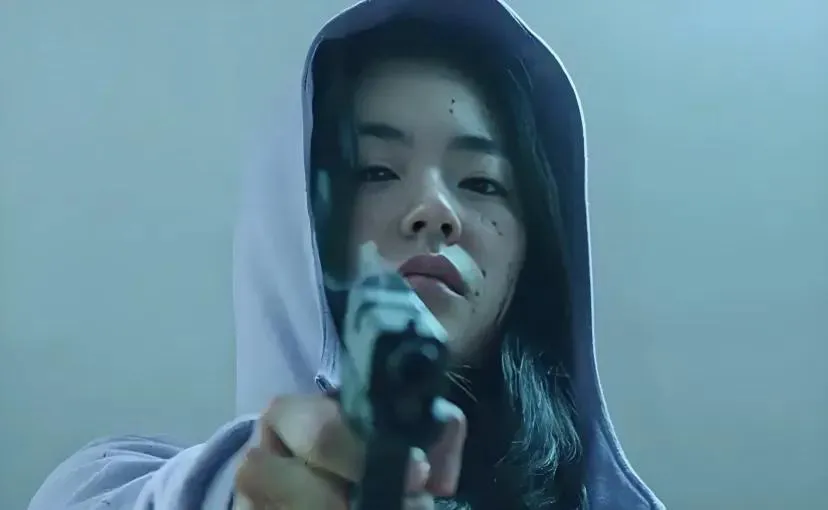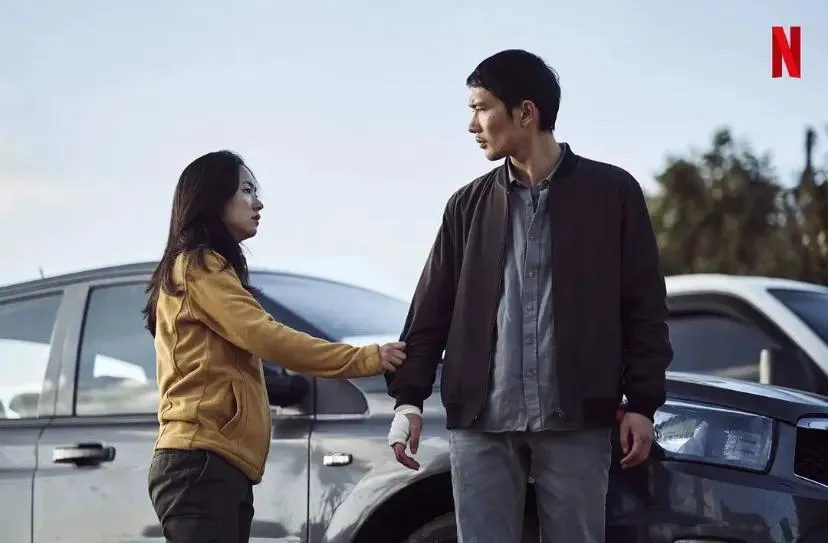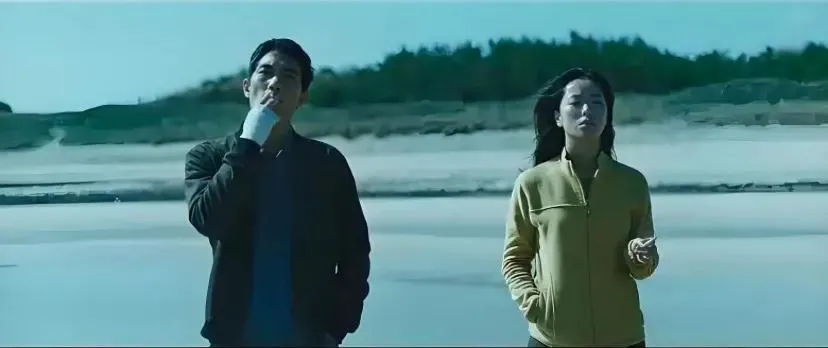A Deep Dive into “Night in Paradise”: Love, Destruction, and Redemption

I stumbled upon a clip of the South Korean gangster film “Night in Paradise” on TikTok and was immediately hooked by its raw intensity. This led me to watch the entire movie, and it was an experience that lingered long after the credits rolled. The clip featured a woman calmly entering a restaurant filled with gangsters, locking the door behind her, and then, without a flicker of emotion, unleashing a torrent of gunfire. The unprepared gangsters were mercilessly slaughtered, their demise depicted with brutal realism. The image of the gang leader’s bloodied face is still etched in my memory, a truly disturbing sight.
The scene was striking, not just for its violence, but for the woman’s chilling composure. It was clear she was driven by revenge, but how could she maintain such a blank expression? What grievances fueled her actions? Where did she find the unwavering courage and strength? These questions propelled me to watch the entire film. The experience was profoundly meaningful, with layers of depth that continued to surface long after viewing. It’s a truly remarkable film.
Unpacking the Themes: Destruction, Love, and Survival
So, what is “Night in Paradise” really about? As I reflected on the film, two primary themes emerged: “destruction” and “love.” I would summarize the movie’s core message as “love and destruction” or “survival and love.” Destruction becomes a means of survival, and love acts as a fulcrum, influencing both the will to live and the inevitability of death.
Why do I consider it a film centered on destruction? Because ultimately, every character, both protagonist and antagonist, meets a violent end. This annihilation stems from a cycle of revenge between opposing forces. The intensity of their earlier conflicts directly correlates to the completeness of their final destruction. It’s akin to the combustion of fuel, where the collision of fuel and oxygen results in a towering inferno.
The Beauty Within Destruction
Yet, amidst this destruction, there’s a certain beauty. How can I describe it? It’s the beauty of life burning brightly. You sense the magnificence of life, and from that magnificence, beauty emerges. Why? Because the lives being burned are meaningful.
But why express the worth of life through destruction or mutual annihilation? Is it because the destruction of the gang eliminates the villains? Not quite. Is it because revenge is achieved? Not really. After careful consideration, I’ve concluded that it’s love.
The age-old cliché, “I would die for love,” comes to mind. While not explicitly stated in the film, it’s powerfully conveyed, expressing the intertwined nature of life, death, love, and hate.
A life is only truly worthwhile when it’s sacrificed for love. This sacrifice can be fleeting, like a shooting star, or it can span a lifetime, a slow-burning flame that lasts until old age and death. Whether it’s a momentary act or a lifelong commitment, the difference is negligible; both can be considered complete.
Even though life and death are intertwined, and we know that life will eventually end, why do we live so earnestly? Even though love and separation are linked, and we know that love will eventually lead to parting, why do we love so deeply? Faced with the fragility of life and the inevitability of separation, two voices emerge. One says, “Since we’re all going to die anyway, it doesn’t matter how we live.” The other says, “Because love will eventually fade, we must cherish it while we can, so that we have no regrets when we part.” It’s the latter voice that resonates with strength and leaves a lasting impression.
Without deeper reflection, the film’s impact remains purely sensory – perhaps excitement, sadness, or a fleeting thrill of violence. It’s like visiting a tourist spot, taking pictures, and checking it off your list, with little to no lasting memory.
Spoiler Alert: A Plot Overview
Perhaps you’re wondering what I’m even talking about. Since I have the entire film in my mind, it might seem like I’m rambling. No worries, let me walk you through the plot, and then I’ll share some additional thoughts. Spoilers ahead!

The plot is simple, even somewhat cliché. There are two rival gangs. One is led by President Yang (remember this scumbag, as he’ll be mentioned later). The other is the North City gang, headed by a Chairman (whose name isn’t mentioned). His second-in-command is Ma Sang-gil, also known as Director Ma, another key figure.
The protagonist, Tae-gu, belongs to Yang’s gang. The story begins with the North City gang Chairman trying to recruit Tae-gu, likely recognizing his talent. Tae-gu then picks up his sister and niece from the airport. On the way to the hotel, their car crashes, killing both his sister and niece.
Yang and Tae-gu meet, followed by Tae-gu meeting the North City gang Chairman in a bathhouse. Tae-gu then kills the North City gang leader. This might be because Yang suspects the North City gang was involved in the deaths of Tae-gu’s sister and niece. However, it’s later revealed that Yang orchestrated the car accident to frame the North City gang, preventing Tae-gu from joining them.

After Tae-gu kills the North City gang leader, Yang tells him to go into hiding, arranging for him to stay at the home of Jae-yeon and her uncle. After Tae-gu leaves, Yang tries to wipe out the North City gang, but fails, allowing Director Ma to escape.
This is a problem because Director Ma is not someone to be trifled with. He’s vengeful. Yang killed his boss, and he vows to make Yang pay. Yang, realizing he’s in over his head, seeks help from Park, a corrupt government official who manages the gangs.
Ultimately, Park suggests that Yang hand over Tae-gu to Director Ma to resolve the situation, making Tae-gu the scapegoat. Yang, being the scum he is, agrees, betraying Tae-gu and putting him in mortal danger.

While Tae-gu is staying with Jae-yeon, he learns that her uncle was also a gangster. Due to her uncle’s past, Jae-yeon’s parents were killed by a gang. Her uncle then avenged their deaths by killing the responsible gangsters. He then took Jae-yeon to a remote location and made a living selling weapons. Jae-yeon has always resented her uncle, believing that her parents would still be alive if he had died sooner. However, she doesn’t feel happy when he is eventually killed by gangsters. During their time together, Tae-gu and Jae-yeon develop a subtle affection for each other. Jae-yeon is also a skilled marksman.
Tae-gu and Jae-yeon’s uncle aren’t entirely bad people. They possess some humanity, some redeeming qualities despite their involvement in the criminal underworld. This is likely the foundation for the connection between Tae-gu and Jae-yeon. Everyone has both darkness and light within them, just like our fluctuating emotions, sometimes rising, sometimes falling.
Later, Yang tricks Tae-gu into meeting him at the airport, claiming he also needs to go into hiding. In reality, Yang and Director Ma are waiting to ambush Tae-gu. While waiting at the airport, Tae-gu receives a call from his loyal subordinate, Jin-seong, who reveals the truth. Tae-gu is spotted by Yang’s men, and a desperate escape ensues.
The plot thickens when Director Ma and Yang capture Jae-yeon while she’s retrieving something from her deceased uncle’s house. They threaten to kill her and Tae-gu’s subordinate unless Tae-gu surrenders. At Jae-yeon’s uncle’s house, Director Ma reveals the truth about the deaths of Tae-gu’s sister and niece, aiming to pit Yang and Tae-gu against each other. This would allow him to punish Yang and ultimately eliminate Tae-gu, restoring peace and allowing the gangs to coexist.
Jae-yeon desperately pleads for Tae-gu’s life, begging them not to kill him so brutally. As Tae-gu lies dying, Yang, the despicable character he is, stabs him again, preventing him from even saying a few words to Jae-yeon. At this moment, a burning hatred and desire for revenge ignite within her. Why isn’t Jae-yeon killed? Director Ma, to his credit, keeps his word and doesn’t harm her after Tae-gu’s death. Director Ma is a gangster with a sense of honor. Yang, on the other hand, says he’ll take care of Jae-yeon for Director Ma, revealing his true nature.
I haven’t mentioned that Jae-yeon has a terminal illness. Her uncle had planned to take her to the United States for treatment, but he died before they could go. With limited time left, she has nothing to fear and acts without hesitation. This is one reason why Jae-yeon appears fearless in that clip. If we lived each day as if it were our last, we too could be fearless. Imagine that.
Finally, we arrive at the scene I described at the beginning. After killing the gangsters, Jae-yeon rides her scooter to the beach, puts on her headphones, faces the ocean, raises her gun, and fires. The gunshot is drowned out by the crashing waves and the approaching police sirens. Everything is over, everything is destroyed, as if it never happened.
In conclusion, I’m reminded of a quote from Joan Chen in “Xiu Xiu: The Sent Down Girl”: “The price of life is death, and the price of love is loss.” My interpretation is this: Because we will die, we should live well; because we will lose, we should love deeply.
d life, and share life. No labels, no verticality, observe the world, see the human condition, gain insight into the wisdom of life, understand the way of heaven and earth, promote mental growth, and live a happy life. In short, live well. If it benefits you, that’s great.